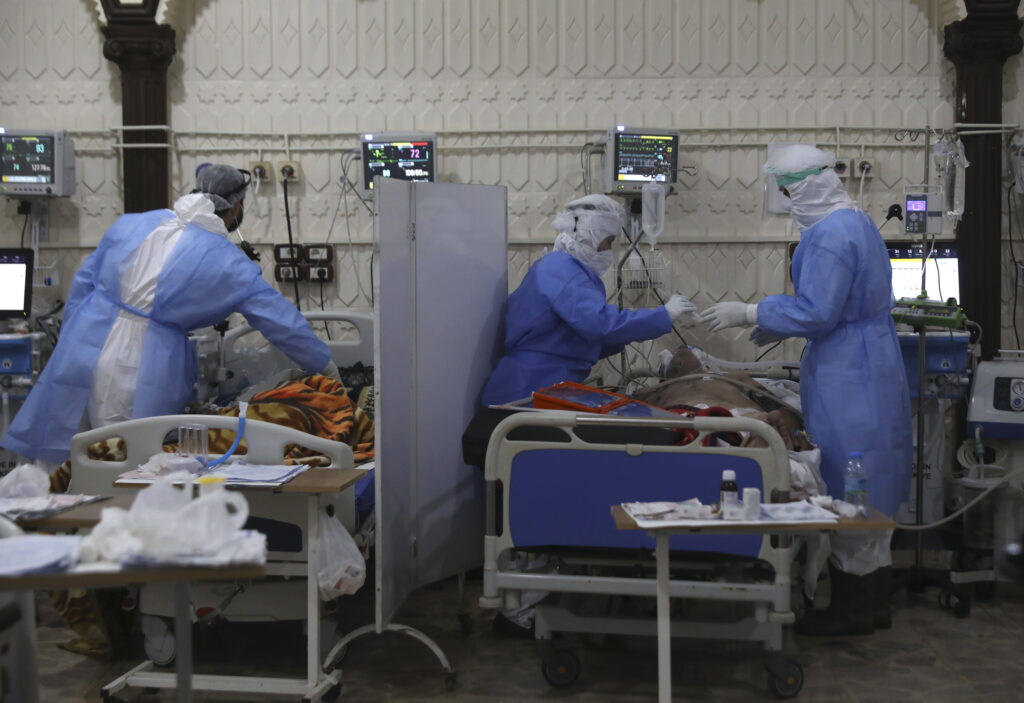Nursing students during the COVID-19 pandemic are struggling to gain admission to nursing programs due to inadequate capacity and limited instructors, according to a recent report released by the American Association of Colleges of Nurses enrollment and graduations report. This limited capacity is compounding the current pandemic-related nursing shortage crisis plaguing the US.
In 2020 and 2021, nursing schools increased their enrollment by 5.6% but over 66,000 qualified applicants were not admitted due to insufficient clinical placements and number of faculty, according to the report. Dr. Jennifer B. Schussler, Dean and Professor at Tanner Health System School of Nursing, says she has seen similar patterns at UWG. The faculty at Tanner School of Nursing has been working hard to increase capacity and has seen success for the current academic year.
“We have worked hard to admit more students because we have so many qualified applicants,” said Dr. Schussler. “This year, we admitted the biggest cohort ever.”
The field of nursing is becoming an increasingly popular career choice for students because of its potential for long term career stability during COVID-19. Despite this popularity, there continues to be serious shortages of nurses. These shortages originated prior to COVID-19 but have worsened during the pandemic, particularly in rural areas.
“The shortage is anticipated to get worse,” said Dr. Schussler. “We are just at the tip of the iceberg. One of the causes [in addition to the pandemic] is that nurses are getting older and a huge tsunami of retirement is coming in the next few years.”
Dr. Schussler believes that nursing programs across the nation should be increasing the scale of admissions to combat this shortage. Programs need to be able to admit large cohorts without lowering the bar for admissions.
“What we need to focus on is the steps we can take to increase our capacity to enroll,” said Dr. Schussler. “All of us in healthcare professions that are in such demand need to ask ourselves if we are truly admitting to capacity.
“You want your process to be competitive because these [nurses] have huge responsibilities to the public,” continued Dr. Schussler. “However, we all have concern when qualified students are being denied simply because we don’t have the clinical capacity or the faculty to teach them.”
Another potential solution Dr. Schussler suggests is compensation. Nursing incomes and bonuses have been on the rise but making sure that these pay increases remain permanent after the pandemic may draw more people into the field.
“The quick and easy answer is increased pay,” said Dr. Schussler. “Even though we know that pay increases may not be as quick and easy as it sounds, this is one of the major causes of difficulty in recruiting nurses.”
Despite the challenges, Tanner Health System School of Nursing is rising to the occasion to meet the demands of the field and produce well qualified and prepared nurses, ready to battle on the frontlines of COVID-19. The field of nursing has been given newfound respect and admiration by the public during the pandemic.
“Nurses really are the foundation of healthcare,” said Dr. Schussler. “A lot of occupations have been identified as being on the front lines, but nursing is truly on the front lines. We occupy that spot the way no one else does.”
You may also like
-
Mystery Science Theatre – A Night of Friends and Food
-
Lily Cone Becomes First Ever UWG Idol
-
From Graduation to Career: The Flexibility of UWG’s Online Master’s Programs
-
Worlds Far Away and Friends Close By: The UWG Sci-fi Club
-
Experiential Learning Helps Students Prepare for the Future through UWG’s bluestone.
